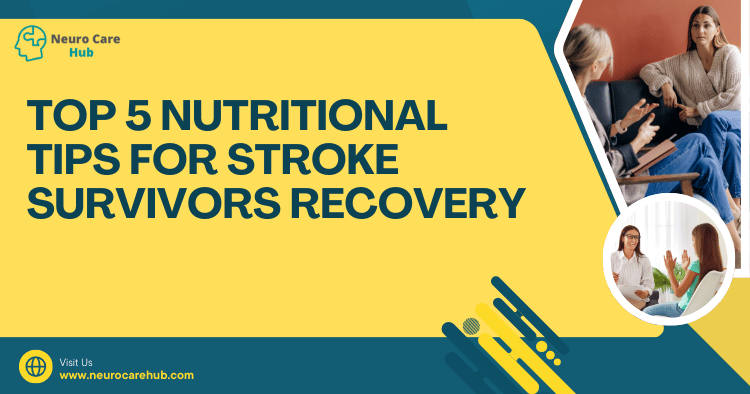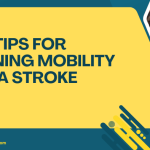Table of Contents
- Understanding the Importance of Nutrition After a Stroke
- Tip 1: Prioritize Whole Foods
- Tip 2: Embrace the Power of Omega-3 Fatty Acids
- Tip 3: Stay Hydrated
- Tip 4: Monitor Sodium Intake
- Tip 5: Consult a Registered Dietitian
- FAQs about Nutrition for Stroke Survivors
Understanding the Importance of Nutrition After a Stroke
Nutrition is crucial in the recovery process following a stroke. A well-balanced diet supports bodily repair, enhances brain function, and minimizes the risk of subsequent strokes. Essential nutrients work together to lower inflammation, improve cardiovascular health, and promote overall recovery.
“The American Heart Association emphasizes that a healthy diet can significantly influence stroke recovery and overall heart health.”
Understanding nutritional needs is vital for stroke survivors, especially in 2024, as new dietary guidelines and research continue to evolve.
Tip 1: Prioritize Whole Foods
Focusing on whole foods is one of the best approaches to ensure you’re getting the nutrients your body requires. Whole foods are minimally processed and include fruits, vegetables, whole grains, lean proteins, and healthy fats.
Why Whole Foods Matter
- Nutrient Density: Whole foods are rich in vitamins, minerals, and antioxidants that help reduce inflammation and support recovery.
- Fiber-Rich: Foods like whole grains and vegetables promote healthy digestion and can aid in weight management, which is crucial for recovery.
Foods to Include
| Food Group | Examples |
|---|---|
| Fruits | Berries, oranges, apples |
| Vegetables | Leafy greens, broccoli |
| Whole Grains | Quinoa, brown rice, oats |
| Lean Proteins | Chicken, fish, legumes |
| Healthy Fats | Avocado, nuts, olive oil |
“Incorporating these foods into meals can be both delicious and beneficial for health.”
Tip 2: Embrace the Power of Omega-3 Fatty Acids
Omega-3 fatty acids are essential fats known to reduce inflammation and promote heart health. These fats can aid in brain recovery and potentially lower the risk of another stroke.
Sources of Omega-3s
- Fatty Fish: Salmon, mackerel, and sardines are rich in omega-3s.
- Plant-Based Options: Flaxseeds, chia seeds, and walnuts are excellent alternatives for those who prefer not to eat fish.
Benefits of Omega-3 Fatty Acids
- Anti-Inflammatory Properties: Help reduce swelling in the brain and body.
- Improved Cognitive Function: May enhance memory and cognitive abilities after a stroke.
“For more information on the benefits of omega-3s, consider visiting Healthline.”
Tip 3: Stay Hydrated
Proper hydration is vital for overall health and recovery. Dehydration can lead to fatigue, confusion, and complications during recovery.
How Much Water Do You Need?
The general recommendation is to drink at least 8 cups (64 ounces) of water daily, but individual needs may vary based on activity level, climate, and overall health.
Tips for Staying Hydrated
- Carry a Water Bottle: Keep a reusable water bottle handy to encourage regular sipping.
- Infuse Water: Add slices of lemon, cucumber, or berries to make hydration more enjoyable.
“Incorporating foods with high water content, such as cucumbers, watermelon, and oranges, can also contribute to hydration.”
Tip 4: Monitor Sodium Intake
High sodium intake can lead to elevated blood pressure, increasing the risk of subsequent strokes. Therefore, monitoring and reducing sodium intake is crucial for stroke survivors.
Recommended Sodium Intake
The American Heart Association recommends limiting sodium to less than 2,300 mg per day, ideally aiming for 1,500 mg for most adults.
Tips to Reduce Sodium
- Read Labels: Always check food labels for sodium content.
- Flavor with Herbs and Spices: Instead of salt, use herbs, spices, and citrus to enhance flavor.
“By making conscious choices about sodium, stroke survivors can promote better heart health and reduce the risk of future strokes.”
Tip 5: Consult a Registered Dietitian
Navigating dietary changes can be overwhelming, particularly after a stroke. Consulting a registered dietitian provides personalized guidance tailored to individual needs and preferences.
Benefits of Working with a Dietitian
- Customized Meal Plans: A dietitian can create a meal plan that meets your nutritional needs while respecting your food preferences.
- Education: They can assist in understanding food labels, portion sizes, and the importance of various nutrients.
“To find a registered dietitian, consider visiting the Academy of Nutrition and Dietetics.”
FAQs about Nutrition for Stroke Survivors
1. What are the best foods for stroke recovery?
Foods rich in antioxidants, omega-3 fatty acids, and fiber, such as fruits, vegetables, whole grains, and fatty fish, are ideal.
2. Can I eat salt after a stroke?
While you don’t have to eliminate salt completely, it’s essential to monitor and limit sodium intake to manage blood pressure.
3. How can I improve my appetite after a stroke?
Experimenting with different flavors, textures, and meal times can help. Eating small, frequent meals may also stimulate appetite.
4. Should I take supplements after a stroke?
Consult with a healthcare provider before starting any supplements, as they can provide tailored advice based on individual health needs.
In conclusion, focusing on nutrition is a powerful way to support recovery after a stroke. By prioritizing whole foods, incorporating omega-3 fatty acids, staying hydrated, monitoring sodium intake, and consulting with a registered dietitian, stroke survivors can enhance their recovery journey.
“Remember, every small change counts toward a healthier future!”
For more insights on stroke recovery, check out Top 5 Emergency Treatments for Stroke Victims and Top 5 Essential Steps for Stroke Rehabilitation Success.






